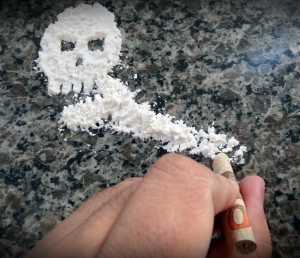
02 Feb Managing Cocaine Withdrawal Symptoms
Cocaine is an illegal stimulant that can be highly addictive and dangerous. If you or someone you know is struggling with cocaine addiction, it’s important to understand the process of cocaine withdrawal and how to get help. Here’s everything you need to know about cocaine withdrawal and what you can do if you or a loved one are battling an addiction.
What is Cocaine?
Cocaine is an illegal substance made from the leaves of coca plants. It is usually sold in powder form or as “crack” (a freebase version). It can be snorted, injected, or smoked. Depending on how it’s used, cocaine can produce short-term effects such as increased alertness and euphoria; however, these feelings are quickly followed by feelings of extreme irritability and depression.
In addition to the physical side effects of cocaine use (including insomnia, heart palpitations, breathing problems, and even stroke), long-term use can lead to severe mental health problems such as paranoia and psychosis.
Short-Term Effects of Cocaine Use
The most common short-term effect of cocaine use is an intense feeling of euphoria that fades quickly. This feeling may be accompanied by increased energy levels, increased alertness, and decreased appetite. Unfortunately, this high can be very addictive; users often find themselves needing more and more to get that same rush they felt when they first tried it. Other short-term effects include decreased inhibition (leading to risky behavior) as well as physical symptoms such as dilated pupils, rapid heart rate, nausea/vomiting, rapid breathing, confusion/disorientation, elevated blood pressure/body temperature/blood sugar levels.
Long-Term Effects of Cocaine Use
The long-term effects of cocaine use can be even more serious than the short-term ones mentioned above; they include brain damage (resulting in memory loss), psychological issues (such as paranoia or psychosis), addiction (which can lead to financial ruin), cardiac arrest (due to prolonged high blood pressure), stroke (due to blocked arteries in the brain), respiratory failure (due to lung damage caused by smoking crack), organ failure (due to prolonged heavy usage), weight loss due to malnutrition from lack of eating while under the influence.
The Symptoms of Cocaine Withdrawal
Cocaine withdrawal symptoms will vary depending on the severity of the addiction, but in general, they include fatigue, depression, anxiety, irritability, insomnia, lack of motivation and increased appetite. These symptoms can last for several weeks after stopping cocaine use. In some cases, particularly if the person has been using cocaine for a long period of time or at high doses, more severe symptoms such as suicidal thoughts may occur during withdrawal.
Treating Cocaine Addiction
The best way to treat cocaine addiction is through a combination of medication-assisted treatment (MAT) and psychotherapy. MAT involves taking medications such as buprenorphine or naltrexone that reduce cravings and help manage withdrawal symptoms. Psychotherapy helps address underlying issues that may have contributed to the development of the addiction in the first place. It also helps individuals learn new coping skills for managing stress and triggers that could lead to relapse.
Getting Help for Cocaine Addiction
If you or someone you know is struggling with cocaine addiction, there are many resources available to assist in recovery. The Substance Abuse and Mental Health Services Administration (SAMHSA) offers free online resources as well as a 24-hour helpline (1-800-662-HELP). There are also numerous drug rehab centers across the country that specialize in treating those with substance abuse disorders including cocaine addiction.
Cocaine use can have serious consequences both physically and mentally if not addressed properly. Understanding the risks associated with using this drug as well as its potential effects on your body is critical when it comes to staying safe and healthy while seeking help for an addiction problem.
If you or someone close to you needs help overcoming a cocaine dependence, there are many options available including medication-assisted treatment programs and professional counseling services provided by certified professionals who specialize in substance abuse therapy. Don’t wait any longer – contact SAMHSA today for more information about getting help for your cocaine addiction!
The information on MedicalResearch.com is provided for educational purposes only, and is in no way intended to diagnose, cure, or treat any medical or other condition. Always seek the advice of your physician or other qualified health and ask your doctor any questions you may have regarding a medical condition. In addition to all other limitations and disclaimers in this agreement, service provider and its third party
providers disclaim any liability or loss in connection with the content provided on this website. Some links may be sponsored.
Last Updated on February 2, 2023 by Marie Benz MD FAAD
